Iran FM Expresses Gratitude To Sanctioned TV Interrogators
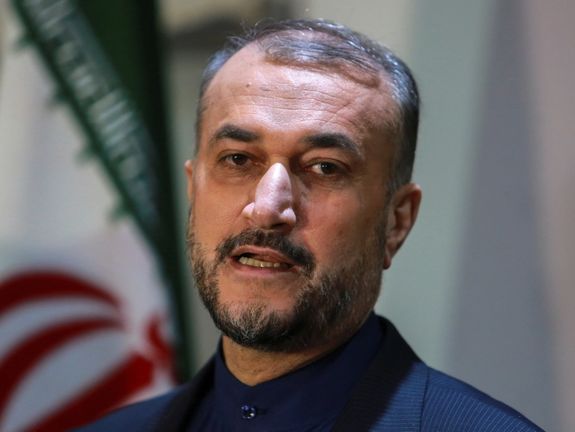
Iran’s foreign minister has met with and expressed appreciation to two interrogators and government TV figures who were recently sanctioned by the United States.

Iran’s foreign minister has met with and expressed appreciation to two interrogators and government TV figures who were recently sanctioned by the United States.
Hossein Amir-Abdollahian on Monday held a meeting with Ameneh Sadat Zabihpour and Ali Rezvani, two infamous ‘correspondents’ working for the state TV.
Amir-Abdollahian said “Western politicians claim to support free media, but they have shown in practice that their positions and statements are hypocritical and based on double-standards.”
US Treasury sanctioned six senior officials with Iran’s state-run media corporation this month over their role in broadcasting hundreds of coerced confessions of Iranians whose relatives died in government custody.
Treasury said Rezvani and Zabihpour had extracted and aired forced confessions in the style of news documentaries.
In 2020, Rezvani interviewed Ruhollah Zam, an Iranian journalist who was abducted, brought to Iran, and later executed by the regime.
US Treasury also added that Zabihpour has a long history of direct involvement in the broadcast of forced confessions of dual nationals, civil society activists, political prisoners, writers, and religious minorities.
In 2017, Zabihpour produced a documentary that tried to portray Nazanin Zaghari-Ratcliff, a British-Iranian woman held hostage by the IRGC on charges of “collaborating with foreign institutions” as a secret agent.
“The United States remains committed to supporting the Iranian people as they continue their peaceful protests. We will continue to hold Iranian officials and government institutions accountable for their human rights violations and their censorship of the Iranian people,” noted Under Secretary of the Treasury for Terrorism and Financial Intelligence Brian E. Nelson.
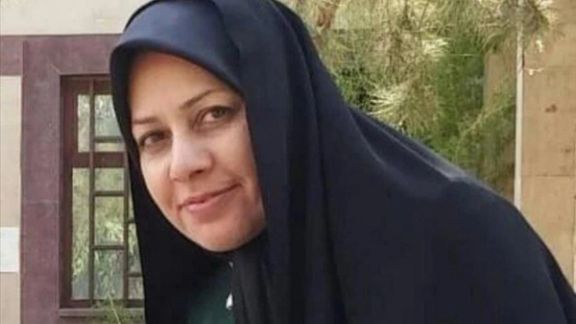
Iran’s Supreme Leader's niece, an outspoken rights activist, has called on foreign governments to cut all diplomatic relations with the Islamic Republic, in a video released after her arrest.
The video message was released on Friday, less than a week after US-based Human Rights Activists News Agency (HRANA) reported the detention of Farideh Moradkhani, whose late father was a prominent opposition figure married to Khamenei's sister.
Decrying the Islamic Republic's bloody crackdown on protests, sparked by the death in custody of Mahsa Amini, she called on people in other countries to be "with us and tell your governments to stop supporting this murderous and child-killing regime. This regime is not loyal to any of its religious principles and does not know any rules except force and maintaining power."
Human beings around the world are watching the battle between Iranians and the evil forces of the regime, she said, criticizing the United Nations for lack of action against the Islamic Republic except for statements of condemnation. According to HRANA, 450 protesters have been killed in more than two months of nationwide unrest as of November 26, including 63 minors. Over 18,173 protesters have also been detained.
She called on the world to end the reign of her uncle, describing him as similar to dictators such as Adolf Hitler, Benito Mussolini, Nicolae Ceaușescu, Muammar Gaddafi, Saddam Hussein, and the Islamic Republic’s founder Ruhollah Khomeini.
"Now is the time for all free and democratic countries to recall their representatives from Iran as a symbolic gesture and to expel the representatives of this brutal regime from their countries," she said.
The video was shared on YouTube on Friday by her brother, France-based Mahmoud Moradkhani, who presents himself as "an opponent of the Islamic Republic" on his Twitter account. He reported her sister's arrest as she was heeding a court order to appear at the Tehran prosecutor's office. Farideh Moradkhani was arrested also earlier this year by Iran's Intelligence Ministry and later released on bail. She had earlier faced a 15-year prison sentence on unspecified charges.
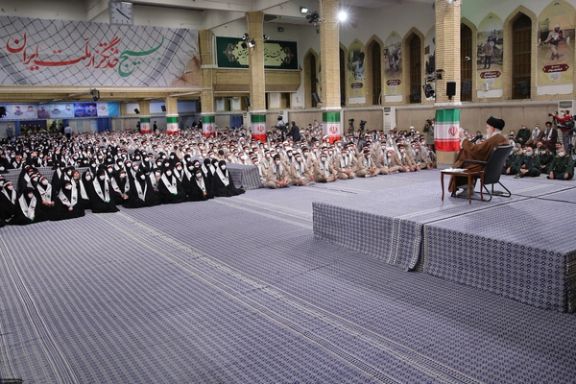
Her father, Ali Moradkhani Arangeh, was a Shiite cleric married to Khamenei's sister and passed away in Tehran on October 19 following years of isolation due to his critical stance against the Islamic Republic. Upon return to Iran from Iraq, where he fled to avoid arrest, he was sentenced to 20 years in prison in 1995 but was released ten years later in 2005.
Criticism of the Islamic Republic has been growing by relatives of top officials. In 2012, Faezeh Hashemi Rafsanjani, the daughter of late former president Akbar Hashemi Rafsanjani, was sentenced to jail for "anti-state propaganda".
On Thursday, the United Nations Human Rights Council convened to discuss the deteriorating situation in the Islamic Republic of Iran, especially with respect to women and children and approved establishing a new investigative mission to probe into Tehran's clampdown on antigovernment protests.
On Saturday, Khamenei praised the country’s Basij paramilitary force for its role in the deadly crackdown, saying, “When facing the enemy on the field of battle, the Basij has always shown itself to be courageous, not afraid of the enemy.”
His remarks came as the situation in Iran remained tense Saturday as people closed their businesses to show support for protests and students held sit-ins at different universities.
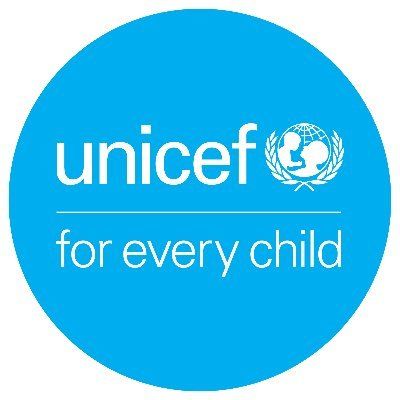
The United Nations Children's Fund has censured government violence against children in Iran, calling for an end to all forms of abuse directed at children.
UNICEF in a statement on Sunday said it has received reports that the Iranian regime’s violence has claimed the lives of over 50 children and injured many more during the unrest in Iran.
"UNICEF also remains deeply concerned about continued raids and searches conducted in some schools. Schools must always be safe places for children,” underlined the international body.
It also said it directly communicated its concerns to the authorities in Iran since the first cases of child casualties occurred in response to the protests.
UNICEF went on to urge Iranian officials to respect the rights of all children to “peaceful assembly as a fundamental guarantee” - no matter who they are or where they are.
It called on security forces to refrain from using “unnecessary or disproportionate force”, underlining that kids and adolescents must be protected from all forms of “mental and physical harms”.
In recent weeks, UNICEF and its ambassadors had been widely criticized on social media for being silent about the suppression of children in Iran.
Earlier, the Iranian envoy to UNICEF, actress Mahtab Keramati, resigned to protest the lack of action.
Oslo-based Iran Human Rights Organization in its latest report said at least 51 children have been killed by security forces in the ongoing nationwide protests.

Many Iranians believe the football team in Qatar is not their national team, but belongs to a dictatorial regime that is ready to use it for its political goals.
In the 1998 World Cup, the American and Iranian teams faced each other for the first time after Iran's 1979 revolution.
The match was called "the most politically charged match in World Cup history" and ended with Iran's 2-1 victory. On the day of the match, my brother came to our house with two "Iran t-shirts," one for him and one for our father, who had recently been forced to immigrate to the United States.
Even though my father had taught physics and mechanics in Iran's high schools for nearly 50 years, had written textbooks, trained young teachers, and with the cooperation of some of his friends, founded Khorazmi Schools, one of the best private schools in Iran, he was forced to leave his country during his retirement.
After all my father had done to serve his country, the newly established Islamic regime penalized him severely. The regime confiscated his schools and arrested my brother and me for our anti-regime activities. My brother Bijan, who had received a ten-year sentence from the revolutionary courts for his political activities, and had spent more than six years behind bars, suddenly was executed in the 1988 massacre of the political prisoners and the Islamic Republic refused to give us his body or tell us where he was buried. The rest of us were forced to leave the country, and my father soon had to join us.

My father loved sports, especially soccer, and always memorized the players' names, the games' schedules, and the results. On that historic day, when he proudly sat in front of the TV to watch the game, I asked him, "Will you support Iran's regime team in this match?" He answered, "It doesn't matter to me which team wins. Iran is my homeland, but America has sheltered me, so whoever wins, I will feel victorious."
That day, my father's answer was not convincing because I had endured pain and suffering as a woman living in an Islamic country with a gender-apartheid regime. Immediately after the revolution, I was forced to go to an all-girls segregated school instead of a "mixed elementary school." The content of schoolbooks was changed to Islamic propaganda. I was forced to wear hijab, long dresses, and wide-leg pants in dark colors to cover my body's curves. All my human rights, including the right to divorce, the right to custody of my children, the right to equal inheritance, the right to testify in court, the right to leave the country, the right to study in a series of disciplines, the right to participate in a series of sports, the right to enter sports stadiums, the right to mingle with the opposite sex, the right to run for dozens of important positions in the country, including the presidency, were taken from me.
I didn't see this soccer team as my country's team, and I hated the Islamic Regime's flag and its anthem. That day, I had no interest in the Islamic Republic team winning, but I was in the minority. The passion for soccer and the World Cup mesmerized everyone. They had forgotten that soccer and the world events are a place for dictators to validate their existence, normalize their oppressive regimes, and spread their propaganda.
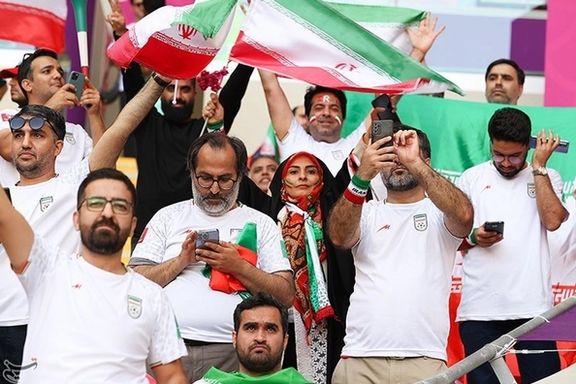
After 24 years, we are again at a historical moment, and on Tuesday, November 29, 2022, the teams of the Islamic Regime of Iran and the United States will face each other. In these 24 years, the regime's violence has reached a much wider range of people. If in the 1980s, the Islamic Republic committed crimes behind the walls of prisons and away from the eyes of the people, now it is shooting protesters in the streets in broad daylight, and cell phone cameras are recording these crimes.
In the 1980s, no one heard the voices of the prisoners who were executed and dumped secretly in individual or mass graves, but today we know the names of many of those killed in the recent protests. Due to access to the victims' social media accounts and because of satellite TVs and other forms of digital media, we know about the victims' interests, their lifestyles, and even the music they listened to. Many of the soccer players in the 1998 match, such as Ali Daei, Mahdi Mahdavi Kia, Karim Bagheri, Ahmad Reza Abedzadeh, etc., are standing by the people now and support the Iranian people's revolution against this brutal Regime.
Today, we should all boycott this World Cup and the Islamic regime's team, which instead of being a "national team," is an "Islamic regime team" and represents a child-killing gender apartheid political system, and hope that it will be the loser of this tournament. Every time the flag of the Islamic Republic is waved in international gatherings and its disgraceful anthem is played; it is a blow to the freedom movement of the Iranian people. In addition, the host of the World Cup, Qatar, is not qualified to host these competitions at all. Not only is it unclear how FIFA granted the hosting of this World Cup to a small country like Qatar, which has no history of football at all, but also Qatar's abuse of migrant workers, not paying their wages, the death of thousands of people during the construction of Qatar's stadiums, and discrimination against women and LGBTQ community makes this country ineligible to host the World Cup.
Although I have boycotted these games and will not watch them, I sincerely hope that the US team wins on Tuesday so that we no longer see the flag of a child-killing, gender-apartheid regime with no respect for human life and human dignity, waiving in the air.
The last victory of the Islamic regime against Wales team was celebrated by its repressive security forces in the street, the same forces that, until hours earlier, were killing innocent people with batons, guns, and bullets. The same forces that are committing crimes against humanity in Baluchistan and Kurdistan. Regime hired immigrants from other countries to cheer its team in Qatar's stadiums. It used all the intelligence capabilities and police forces of Qatar to prevent its opponents from entering the stadiums and silenced their voices. A team with this background does not deserve victory.
The real Iranian National Team is the young people willing to die in the streets for freedom and secularism. Our national team is imprisoned in Evin and other prisons in Iran. Our heroes are Nilofar Hamedi, Zainab Mousavi, Elaha Mohammadi, Hossein Ronaghi, Toomaj Salehi, Majid Tavakoli, Arash Sadeghi, Sepideh Qolian, Golrokh Iraei, Zeynab Jalali and thousands of others who are ready to give their lives for their country, for freedom of Iran, and a better tomorrow.
Opinions expressed by the author are not necessarily the views of Iran International
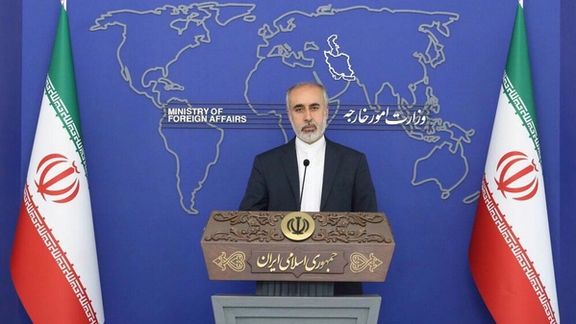
Iran’s foreign ministry has summoned Germany’s ambassador in Tehran for the third time in a month to protest “interventionist” remarks by German officials.
Tehran says the German envoy Hans-Udo Muzel was also summoned for Berlin’s key role in holding a UN Human Rights Council special session on Iran last week.
Iran’s foreign ministry spokesman Naser Kanaani said in this meeting, Tehran “strongly protested against the interventionist and baseless statements of the German authorities.”
“The German ambassador was also told that the recent resolution of the special meeting of the UN Human Rights Council is a wrong step based on a completely political and instrumental use of human rights and is fundamentally rejected. The Islamic Republic of Iran will not cooperate with any mechanism defined by it,” added Iran’s foreign ministry.
The ministry also noted that it has warned the German ambassador that Berlin and other European governments who support “the unilateral sanctions of the United States” are not “qualified to raise human rights claims”.
The UN Human Rights Council voted Thursday to launch an independent investigation into Iran's deadly repression of protests, that has killed more than 400 civilians.
The 35th special session of the Human Rights Council was held following an official request submitted on November 11 by Germany and Iceland, as well as the support by over 40 other states.
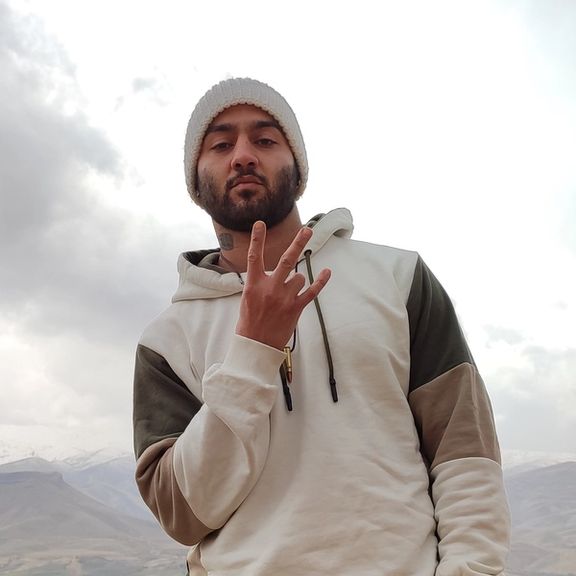
Chief Justice of Iran’s Esfahan province says dissident popular rap singer Toomaj Salehi has been accused of “corruption on earth” which may carry the death penalty for him.
Asadollah Jafari on Sunday said Toomaj Salehi faces other charges, including “propaganda activity against the establishment, forming an illegal group with the intention of disrupting the security of the country, cooperating with hostile governments, and spreading lies and inciting others to commit violence.”
However, Jafari said no court has been held for the rap singer yet. Toomaj Salehi was detained in late October after criticizing the Islamic Republic and expressing solidarity with the protest movement after the death of Mahsa Amini in police custody.
This comes as sixteen UN-appointed independent human rights experts urged the Iranian government to stop using the death penalty as a tool to punish protesters.
A US-based human rights group said on Saturday that Toomaj Salehi's trial had begun “without an attorney of his choice,” and his family said his “life is in danger.”
Earlier this month, 126 musicians, poets, artists, and activists called for his release.
Salehi’s arrest came shortly after his interview with the Canadian Broadcasting Corporation, saying that “You are dealing with a mafia that is ready to kill the entire nation... in order to keep its power, money and weapons.”
In his politically charged songs such as “Buy a Rat Hole”(2021), Toomaj, a 32-year-old metalworker in Esfahan, spoke out against repression, injustice, poverty, and authorities’ own corruption and impunity from prosecution.